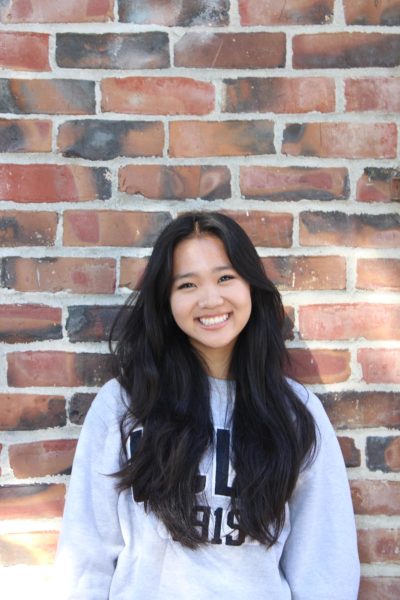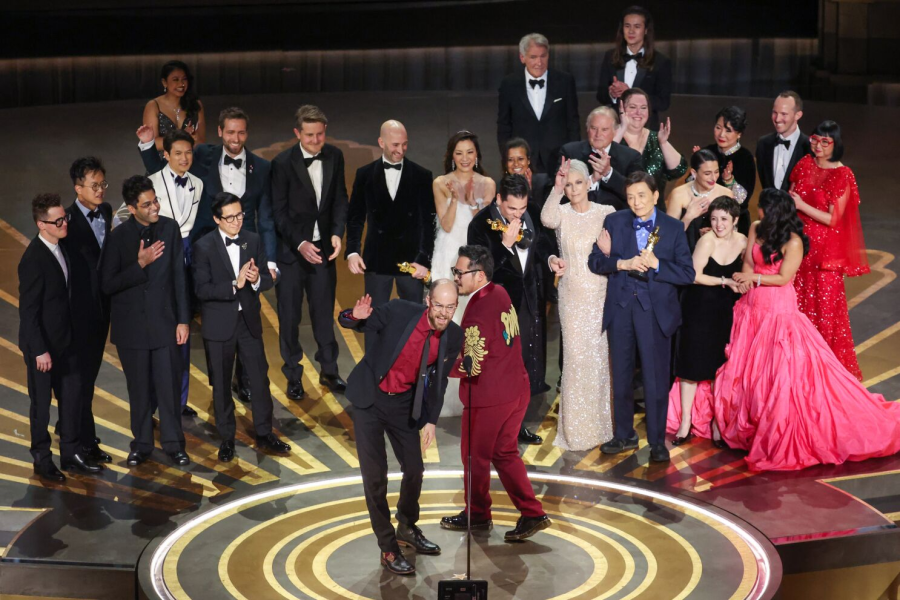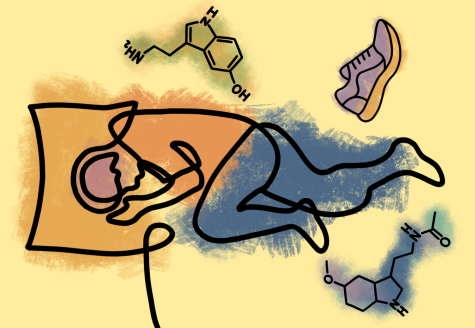Asian recognition at the Academy Awards
Hollywood has always been a white-dominated industry, without much room for people of color. However, the past few years have seen a major change. This year commemorated the 95th Oscars, and one of the first times in history that Asians have been acknowledged for their contribution to the film industry. Seeing healthy representation in not only movies but in the acknowledgment of cast and crew on such a high level is inspiring for people of color. With over 15 nominations overall, this was a major win for the Asian community.
Up until recently, Hollywood has been unable to accurately represent Asians as anything more than a stereotype. The roles that they portrayed in movies would be nuanced versions of the model minority or borderline racist, perpetuating dated ideology. Asians’ existence in film was oftentimes there to add enough diversity without taking away from the white protagonist. Characters such as Raj Koothrappali from “The Big Bang Theory” or Long Duk Dong from the 1980’s romcom “Sixteen Candles” come to mind. At times, rather than casting Asians for roles, the film industry turned to yellowface. Scarlett Johansson played the role of Motoko Kusanagi in the English adaptation of “The Ghost in the Shell,” where she was digitally altered to appear more Asian looking. The Academy recognizing positive Asian representation is a step forward to finally retiring the overused and racist image that has continued to appear in modern media.
The 2023 Oscars were significant in the way that Asians were recognized for their own stories. The film “Everything Everywhere All at Once” was nominated for 11 Oscars, winning seven of them, including Best Picture, Best Actress and Best Original Screenplay. The movie follows Chinese immigrant Evelyn Wang (Michelle Yeoh) whose ordinary life intertwines with the multiverse, and she must fight to save her world’s existence. This film is a quirky and bizarre take on science fiction but is rooted deeply in the portrayal of familial relationships. The co-director Daniel Kwan was able to perfectly capture the immigrant parent-child relationship, which was able to connect with audiences in a whole new way. A movie with such emotional impact and cultural representation could not have been made without understanding what it is like to be first-generation in America.
Additionally, the 95th Oscars were the first ever where the Academy recognized multiple Asians for their contribution to the industry. Michelle Yeoh, the protagonist in “Everything Everywhere All at Once,” won Best Actress at 60 years old, and became the first Asian woman and second woman of color ever to be recognized for her art by the Academy. Ke Huy Quan won Best Supporting Actor for his portrayal of Waymond Wang in “Everything Everywhere All at Once.” He became the second Asian ever to win in the category. The director and producer of “The Elephant Whisperers,” Kartiki Gonsalves and Guneet Monga, respectively, became the first Indian pair to win Best Documentary Short Subject. The Best Original Song went to “RRR” for “Naatu Naatu,” created by M.M. Keeravani and Chandrabose.
Asians creating a space for other Asians, and being recognized for telling a story that resonates with their community is a huge leap forward in the film industry. Diversity in the media we consume is crucial, as it shapes how we see ourselves in the real world. Mainstream media, such as the Oscars, including more representation is an advancement in integrating more people of color into the field.













